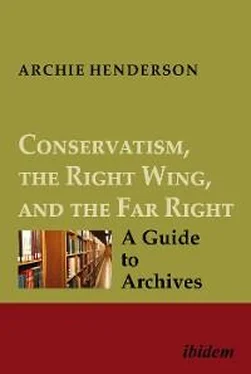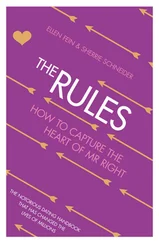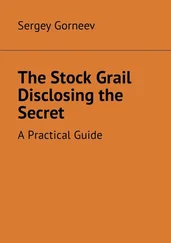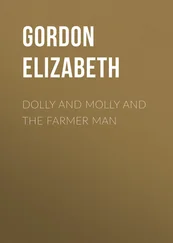ibidem Press, Stuttgart
Table of Contents
Introduction
Archival Collections
A
B
C
D
E
F
G
H
I
J
K
L
M
N
O
P
Q
R
S
T
U
V
W
Y
Z
Index of Archives by Locations
Index
A
B
C
D
E
F
G
H
I
J
K
L
M
N
O
P
Q
R
S
T
U
V
W
X
Y
Z
Copyright
"In the interest of knowledge, then, we have every reason to remember the past as fully as we can and to realize that its continued existence in mind is positively a determinant of present actions."
(Richard M. Weaver, Ideas Have Consequences 1)
"The conscious present is an awareness of the past."
(T. S. Eliot, "Tradition and the Individual Talent" 2)
"For history, as nearly no one seems to know, is not merely something to be read. And it does not refer merely, or even principally, to the past. On the contrary, the great force of history comes from the fact that we carry it within us, are unconsciously controlled by it in many ways, and history is literally present in all that we do."
(James Baldwin, "The White Man's Guilt" 3)
"Temporal bandwidth" is the width of your present, your now. It is the familiar "At" considered as a dependent variable. The more you dwell in the past and in the future, the thicker your bandwidth, the more solid your persona. But the narrower your sense of Now, the more tenuous you are.
(Thomas Pynchon, Gravity's Rainbow 4)
"We are forgetting our past faster with each passing year."
(Jean-Baptiste Michel et al. 5)
Historians, legal researchers, and others dependent on archives for information and knowledge have increasingly recognized the important role of archivists. 6Over the last ten to fifteen years, an "archival turn" in history, literature, anthropology, and the humanities and social sciences in general has transformed archives from sites of research into objects of enquiry in their own right. Archives have come to be seen not as neutral repositories of sources but as historically constructed tools of power relations, deeply embedded in changing social and cultural contexts. 7Areas of study include investigations of memory practices; representation of cultural minorities in the historical record; the role of curatorial voice, including the evolving processes of selection, ordering, and usage; human rights and access to documentation. 8With the "archival turn" has come the recognition of the need for historians to engage "with the limits and possibilities of the archive as a site of knowledge production, an arbiter of truth, and a mechanism for shaping narratives of history." 9The same recognition is at work in other disciplines. In American literary history, for example, newly-unearthed documents have heralded "revisions in canons, new understandings of genres, and emerging, competing narratives." 10
As archives have assumed a more important role in contemporary scholarship, the need for access to the archives has increased. The "digital revolution" and the existence of electronic finding aids, many of which have been created, uploaded and revised--sometimes frequently--in the last few years, have done much to expand access. Before the development of the internet and the creation of online finding aids, historians depended on printed bibliographic guides, references in secondary sources, suggestions from colleagues, suggestions from archivists, and accession lists in historical journals. Of these sources of information, references in secondary sources were by far the most useful. 11A survey conducted by Michael E. Stevens in 1977 on the number of archives visited by responding historians in the previous five years found that nearly half of the sample visited more than five research institutions during the five-year period. It is clear that historians consult many more archives now, partly because information about the archives, accessed especially through online finding aids, is so much more readily available. Jennifer Rutner and Roger C. Schonfeld, surveying another group of historians in 2010, wrote that historians "desire to have finding aids for all archival collections online." 12The historians expressed the further "desire to have these finding aids collocated for centralized searching." 13
The move towards online finding aids began in the 1990s. As of February 2000, approximately 8 percent of repositories listed at the 'Repositories of Primary Resources' website had mounted at least four full finding aids on the Web. 14In a 2004 survey, it was found that most archives surveyed had no more than 10 percent or less of their holdings described online. In a 2010 paper, Christopher J. Prom found that among surveyed institutions "the 'average' institution makes descriptive information at any level of completeness available on the Internet for a paltry 50% of its processed collections and 15% of its unprocessed collections." 15As of the summer of 2010 only 20% of the collections of the Special Collections and University Archives (SCUA) at the University of Oregon Libraries were discoverable online either in the form of a MARC record in the library catalog or an EAD finding aid in Northwest Digital Archives (NWDA). 16Many finding aids remain in paper form only for consultation at the archives in question and may or may not be listed on the websites of the libraries or archives in question. Many collections do not have finding aids. "Libraries, archives, and cultural institutions hold millions of items that have never been adequately described. This represents a staggering volume of items of potentially substantive intellectual value that are unknown and inaccessible to scholars." 17There are hundreds, probably thousands, of unprocessed political collections in repositories across the United States. 18These numbers indicate that, while much work has been done to upload finding aids, much remains to be done.
With online finding aids for archival collections now numbering in the tens of thousands, it is now possible to locate archives and compile a guide to their holdings in a way that would have been out of the question a few years ago. 19Why a printed guide to archives whose finding aids are already available online? Finding aids open up the contents of archives and collections. At the same time, items tend to get buried in finding aids. 20One reason for this is that finding aids tend to be produced by the institution holding the archive and tend not to be integrated into a network that extends beyond the institution or beyond a state or regional system. On the other hand, a search across finding aids at an institutional search engine may produce too many returns when, instead, a principle of selection is needed. For example, the National Archives (UK) search engine 21returns 514 results for Oswald Mosley. The Eisenhower Library alone lists hundreds of finding aids on its website. 22In the face of this abundance of material, the most relevant items may get lost. Finding aids, moreover, are being added to the internet faster than it is possible to locate them. Keyword searches on a general internet search engine may cast a wide net for a specific topic and may gather more material than is needed, while at the same time casting a narrow net that will miss many related topics.
The present work is an attempt to facilitate the use of archives in the area of conservatism, the right wing, and the extreme right by pulling together relevant archival materials from online finding aids into a fully-indexed master list. It is an effort to network the finding aids. Although it is one step removed from the finding aids that comprise almost all of the material described, it is hoped that this "finding aid of finding aids" will at the same time bring a wider spectrum of material within view of the reader. Furthermore, all mentions of a person, topic, or organization can be checked in an instant in the index. Also, this guide may also serve as a pointer to unprocessed collections or to collections unknown to the compiler which relate to subjects covered in the guide. For example, reference is made to a handful of state or local Associations Opposed to Woman Suffrage. No doubt there were many similar organizations operating in other states–perhaps in all the states–whose records or publications remain to be publicized or brought to light.
Читать дальше












